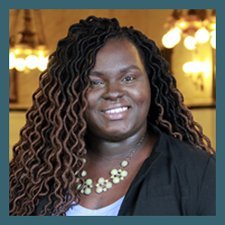What happens when you mix a Chicago Irish Democrat with a small-town Illinois Baptist Republican? - The amazing community servant duo of Richard and Judy Buchanan.
Judy grew up on Chicago’s southside and in the Englewood neighborhood. her father and mother were both first generation Irish-Americans, her father a childhood friend of Mayor Richard M. Daley. While her father worked for the City, Judy lived in the tight-knit neighborhood of parochial schools, the Catholic Church, the firehouse and police station all within close proximity.
The Illinois Central Railroad in Clinton, Illinois was Rich’s roots, born to a railroading family. Rich qualified as a locomotive fireman at 17 and with railroad jobs worked his way through college, supporting not only his own education, but also partially his sister’s at Illinois State.
The two met at Northern Illinois University; Judy was the “lone woman” working in a dormitory cafeteria that housed 500 men. After two unsuccessful date invitations, Judy succumbed to Rich’s request on the third try. Within a few weeks, he was convinced this was the woman he would marry.
After U.S. Army service the two married. Rich originally worked for General Telephone (today’s Frontier), leading offices in Kewanee and Chillicothe before coming to Bloomington in 1966. Judy taught first grade, until their three children brought her full-time motherhood. Rich was then hired by State Farm in 1970 as a training supervisor. While at State Farm, he oversaw the hiring of systems analysts and programmers.
Rich was appointed to the Regional Planning Commission by Mayor Walt Bittner. In 1971 at age 31, Rich was elected to the Bloomington City Council, serving two terms, followed by two terms as Mayor from 1977-1985. “I loved it,” Rich said. “I loved meeting people, going door to door.” Following two terms as Mayor, Rich then chose to “hang it up”. A significant change in local government was the personal and professional relationship Buchanan built with Mayor Richard Godfrey in Normal. Until then, an attitude of resentment was common between the two municipalities. “Dick Godfrey and I are best friends,” Rich remembered. “We had such respect, we spent evenings together, we took care of each other, we shed some tears together. It was an important relationship.”
Rich, a teetotaler, was appointed a liquor commissioner by Mayor Bittner, a position he continued in after his elected duties. He made sure he knew every liquor license holder in town. On December 22, 1976 Rich squared off at Calvary Baptist Church, where Reverend Arno Weniger challenged Rich’s Christianity if he did not vote against an expansion to mainly establish Sunday liquor licenses. Baptist Buchanan held his own, voting to ensure Bloomington’s liquor laws were consistent with Normal’s.
Rich’s final electoral position was with McLean County board; he enjoyed seeing how another governmental unit operated and bringing his City experience to the position.
While Rich was busy with electoral duties, Judy was also active in the civic sphere. She became active in not only local politics, managing Rich’s campaign, but also led statewide with Governor Jim Thompson, Congressman Tom Ewing, State’s Attorney Ron Dozier, State Senator Dan Rutherford, circuit clerk Don Everhart, President George H. Bush and other campaigns. She introduced President Bush when he made a McLean County campaign stop.
While Rich was Mayor, Judy was often “at the rail” at the State House, becoming a citizen lobbyist for mental health issues, often with her daughters at her feet, busy with their coloring books. After losing her mother at young age to Alzheimer’s, Judy became a statewide leader with the Alzheimer’s Association not only working the legislature on mental health, criminal justice, child welfare and Alzheimer’s issues, but also drafting some of the actual legislation.
While active in the State House, Judy successfully led an effort to override the Governor’s veto that cut funding for Illinois Alzheimer’s Disease Centers. Judy cited the critical need for research as being a key component to the ongoing identification, care and treatment for those living with Alzheimer’s disease. As with all advocacy efforts, we need the political will to reduce stigma and inform, she commented.
As a health contract lobbyist and advocate, Judy worked for a political and legislative consulting firm, while also working administratively for Carle Clinic and The Health Center. Her volunteer leadership statewide, nationally and in McLean County is voluminous, having served as chair or President of the McLean County Board of Health, Connect Transit, the Illinois Medical Group Management Association, Advocate-BroMenn’s Gifting Committee, McLean County Republican Women, Illinois Alzheimer’s Association, Illinois Mental Health Association, McLean County Center for Human Services and Walk for Mankind. Besides her leadership with these groups, she’s also served on boards and committees with the McLean County Board Executive Committee Mental Health Advisory Group, McLean County Chamber of Commerce, McLean County League of Women Voters, and the Illinois Association of Community Mental Health Agencies.
Judy and Rich have three children, Jennifer, Julie and Gary, plus two grandchildren. Their children not only learned from their parent’s example, but when young, held “city council meetings,” Stevenson School mock elections and “campaign celebrations” in the family home. Now as adults, each would accompany Judy on “Hill” visits to Washington DC to advocate for Alzheimer’s disease research.
“I’ve been grateful for all the opportunities I’ve had,” Judy noted, “being raised in the city, first one in the family to go to college, being a Mom and a service mentality. It’s important to get involved in the community, you will feel stronger and better for doing it.”
With love, Rich added, “It’s a good thing for me that she’s like she is and I’m better for it. I’ve admired her and what’s she done. There’s never a task she wouldn’t take on.”

